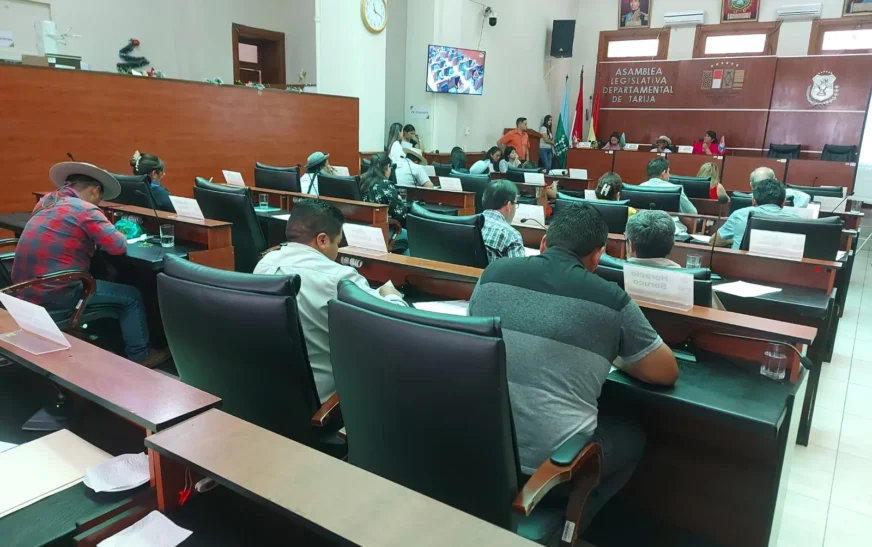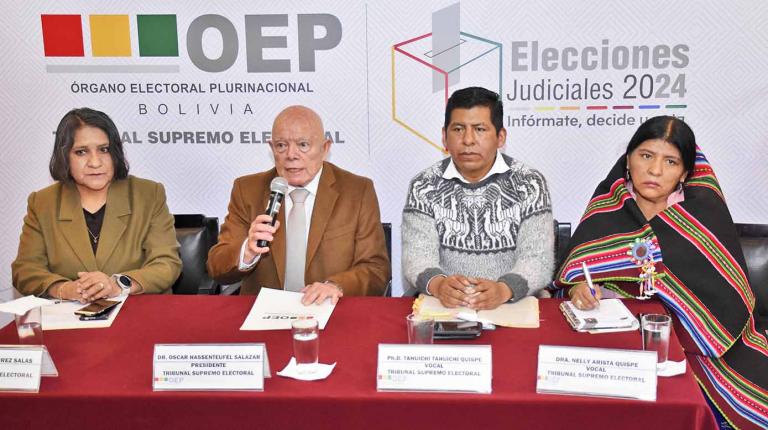Allegations have resurfaced concerning a period in 2022 when departmental assembly members in Tarija reportedly ceased legislative activities. Specifically, concerns are raised about the conduct of the 29 full members who were enabled at that time, from early May 2022 for a duration of nearly three months. During this timeframe, it is claimed, neither full plenary sessions nor committee work took place.
The assembly’s own general regulations stipulate potential consequences for members who abandon their duties. Article 18, inciso e, outlines that continuous absence for six days or discontinuous absence over eleven days can result in the loss of their mandate. Critics argue that the alleged cessation of activities during that specific period, encompassing both committee tasks and plenary sessions, meets the criteria for abandonment of functions as defined in the regulations.
Initial complaints regarding this alleged inactivity were reportedly lodged with electoral bodies. These authorities subsequently indicated that the issue fell under the purview of the legislative assembly’s internal ethics commission. A proposal was reportedly made at the time to constitute an ethics commission composed of substitute members, given that the full members were the subject of the complaint. This proposal, however, was not acted upon.
Years later, in May 2025, the matter reportedly remains unresolved. Concerns persist regarding the payment of salaries to assembly members during the period they were allegedly inactive. Furthermore, related discussions, such as a potential reduction in the number of assembly members, have also apparently not advanced.
In light of the lack of resolution, it has been announced that the complaint will be formally resubmitted this Monday, addressed once more to the assembly’s ethics commission and also presented to the full assembly. The intention behind this renewed effort is reportedly to urge the assembly to establish an ethics commission specifically to investigate the allegations. A key proposal is that this commission be formed by substitute members, arguing that the full members who are the subject of the complaint cannot ethically sit in judgment of themselves.
Acknowledging that substitute members do not typically occupy permanent commission roles designated for full members, the proponents suggest that a *new* commission should be specifically created for this purpose. The upcoming election of the assembly’s new directive is seen as an opportune moment to propose and implement this. Legal analyses supporting the complaint highlight that the alleged collection of salaries by legislative authorities during this period of inactivity constitutes receiving payment without rendering service for nearly three months. This alleged failure to convene sessions, as required by their governing regulations, is viewed as a potential breach of duty (incumplimiento de deberes) and is argued to have caused economic damage to the state by virtue of salaries paid for unperformed work. Given the perceived lack of sufficient attention to the initial complaint, proponents emphasize the need to pursue the matter further, including filing a corresponding report with the Comptroller General of the State.
The timing of this renewed effort is described as opportune, coinciding with the upcoming process to elect the assembly’s new directive and establish new commissions. Critiques have also been leveled against the assembly’s internal regulations, suggesting they were largely copied from other legislative bodies’ rules and did not adequately anticipate or provide clear procedures for handling situations like the one currently being alleged. It is proposed that the full assembly formally issue a resolution specifically authorizing the creation of an ethics commission comprising substitute members to address this specific complaint. The argument is based on the principle that resolutions issued by the assembly’s full body hold the same regulatory weight as the general regulations themselves, thus providing the legal basis for creating such a commission if the political will exists. Broader criticisms regarding the assembly’s overall performance have also been voiced, describing their legislative output as often focused on declarative laws lacking relevance or impact on structural issues, rather than addressing substantive matters or fostering development










